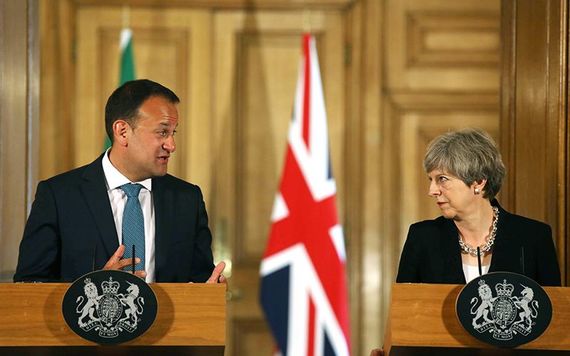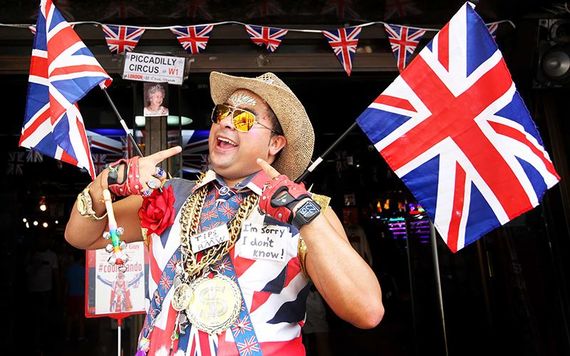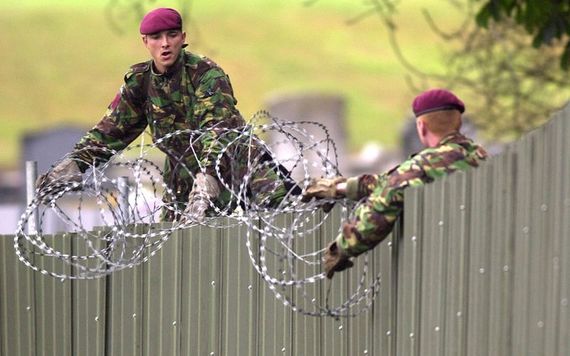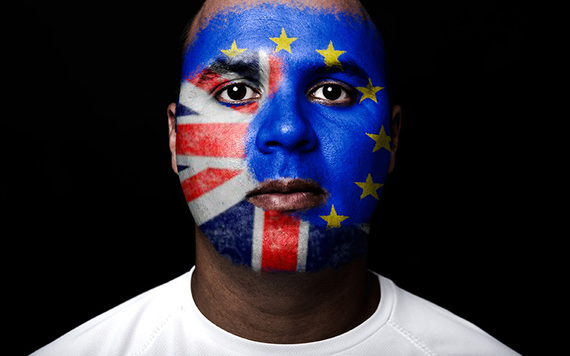There are just over 30 days until Brexit and it's becoming the stuff of nightmares.
Just ask British farmers. They were repeatedly assured a trade deal with Europe would be the easiest made deal in British history. They were told Britain would hold all the cards in the negotiations.
They were lied to.
The fact is there still isn't a deal with Europe and in a few weeks time, the imposition of high export tariffs could effectively mean British farmers have no market for four and a half million lambs.
A no-deal Brexit would quickly decimate those sheep farms up and down Britain. It would be a catastrophe unparalleled in modern British farming.
You can read more Brexit coverage here.

Neither Theresa May's government nor the deluded Brexiteers who led Britain toward this reckoning have a plan for them or for what happens after the fall-out of a no deal.
Instead, they have been busy wondering where to hide the queen when all the anticipated street riots begin, as the public begin to grasp the sheer scale of the disaster they have voted for.
We Irish have certainly learned about how British political policies can lead to disastrous food shortages, but we take no pleasure in the looming crisis.
We also have also learned what happens when rigid ideologies confront real life. It would have been nice if our repeated warnings to London about the dangers of a reemergence of the British border in Ireland had been listened to, but British leaders were too busy making Britain great again to hear a word.

This week the Japanese car manufacturer Honda announced it was leaving Britain. In particular, it was leaving Swindon, taking 3,500 jobs. I have been to Swindon and it looks like a midwestern factory town in the US, there is not much else going on in the place economically.
Swindon will feel the loss in all the related jobs and cafes that rose up to cater to Honda's workers too because the plant had operated successfully there for over 25 years.
Then this week the British government announced it would consider applying tariffs on imported food to protect British farmers, contradicting one of their own rationales for Brexit.
On the ground what this means is that your weekly shopping in Britain is about to get a lot more expensive. If Britain had the stature of Germany within the EU they might have bargaining power over this, but they will be out of the EU as they attempt to throw shapes.

What this also means, if it comes to pass, is politically disastrous for Northern Ireland. All of these food products with different tariffs will need a hard border to facilitate and ensure they are checked.
We are all too aware that if the British government think of the North at all it's to make disparaging colonial jokes and indulgently shake their heads at the incomprehensible paddies, but this is serious.
They don't think about us, they don't know our history. English schools don't touch Irish history because it would disrupt their carefully crafted narrative that the Empire had been a cohesive and civilizing moment in world history. Good luck breaking through that impenetrable self-regard.

The impact in Britain will be felt most by the middle and working classes, who will see benefit cuts and a hike on food prices. Because who but the consumer will pay for all these increased tariffs?
The new safety checks with the EU will reportedly take livestock farmers up to six months, there will be delays at all ports, not to mention all the market instability that will arise from Britain's application of import tariffs on goods and food coming into the country.
From Ireland, it looks as if the British government has completely taken leave of its senses. Brexit appears to be eating itself.
A no deal would clearly put British sheep farmers out of business within a period of about six months, hence the latest dramatic re-calibrations this week to avoid the latest iceberg, but looming catastrophe seems to be the ultimate terminus no matter where the ship of state is steered.
It's ironic that British sheep farmers are discerning the profile of their own destruction now when so many of them voted for Brexit in the first place.
Perhaps it can all be explained by a combination of a fever dream of former glories and an incompletely studied history, but the crisis has already begun.
What are your thoughts? Let us know in the comments section, below.




Comments